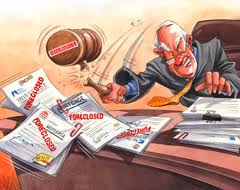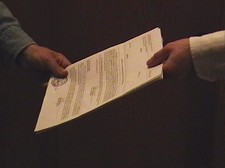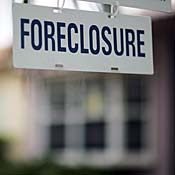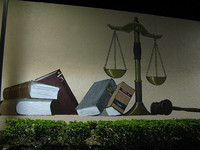 Foreclosures only seem like good deals today. But if you’re going to buy a property being foreclosed then you really need to know what you’re getting. Therefore, buyers beware of buying foreclosures. That’s why it is critical for buyers to perform all of the necessary due diligence prior to purchasing a foreclosed property. As part of your due diligence, it is vital to have a home inspection performed by a qualified reputable home inspector. This way you’re going to know what you’re buying. You need to get that home inspection performed on time so you can make an educated decision about the transaction.
Foreclosures only seem like good deals today. But if you’re going to buy a property being foreclosed then you really need to know what you’re getting. Therefore, buyers beware of buying foreclosures. That’s why it is critical for buyers to perform all of the necessary due diligence prior to purchasing a foreclosed property. As part of your due diligence, it is vital to have a home inspection performed by a qualified reputable home inspector. This way you’re going to know what you’re buying. You need to get that home inspection performed on time so you can make an educated decision about the transaction.
The importance of knowing what you are buying cannot be overstated.
It happens every day where potential property owners fall into a trap. The trap is when they believe in a property’s potential without consulting a qualified home inspector. They rush through the transaction thinking they are going to make a “quick buck” by flipping the foreclosed property, or they may just want to buy a cheap fixer-upper to make their dream home or office space.
Whatever the case may be, what inevitably happens most of the time is the buyer just purchased a bigger problem than they realized. The property may require a lot of repairs, or worse a property that is condemned.
Of course, there may also be problems with the chain of title. The foreclosure may not have been conducted properly by the foreclosing party which may mean that the buyer does not even own the property properly. That would invariably result in additional litigation to clean up the chain of title and ownership rights.
Therefore, it cannot be stressed enough that if you want to make a successful foreclosure purchase here in Miami, take the time and effort to find a reputable home inspector that you can trust. Spend the money on hiring the necessary professionals to perform all the necessary searches and engage in the necessary due diligence to learn as much about the property as you possibly can.
Remember, buying a foreclosure is only a good deal when you take the appropriate steps to ensure that the property you are buying is worth the money and effort required. Do not hesitate to contact us should you wish to discuss further.









